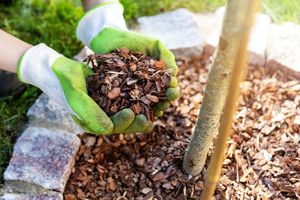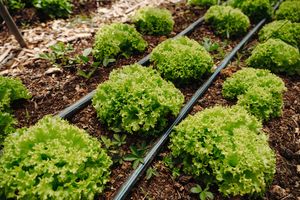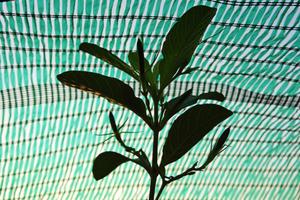Many people eagerly anticipate the summer sun, but for gardens, the heat can be very stressful. The sun can scorch plants and deprive the soil of much-needed moisture, putting the entire garden in jeopardy. This can pose a big challenge for gardeners who want their soil to stay hydrated without running the risk of overwatering it or damaging water conservation efforts.
How can you ensure your topsoil stays hydrated this summer so your garden can thrive? Here are our best tips for maintaining a happy garden in the face of rising temperatures.
Mulch Generously

One great way to keep soil from drying out is by covering it with a blanket of mulch. Organic materials such as bark, leaves, straw or even shredded paper all work well to moderate soil temperature and stop evaporation and runoff from occurring while keeping moisture in the soil for a longer time between waterings. This is a particularly good approach for garden beds.
Be careful not to apply too thick of a layer as this can suffocate plants; an inch or two should be sufficient for most types of gardens.
Add Water-Absorbing Materials To Soil
Whether you choose to apply mulch on top of your soil or not, you can enhance your soil’s ability to retain water by mixing some organic material into the soil, such as peat moss or coconut coir. This helps to keep some reserved moisture in the soil that plants can rely on during dry spells, making it a good approach for soils that tend to drain too quickly. Adding organic material into the soil also improves its structure and aeration, further enhancing the garden’s health.
Water Deeply
Many home gardeners have a tendency to water their plants frequently and shallowly. However, experts recommend less frequent but deeper waterings as they tend to be more effective for most types of plants. This approach allows the plant’s roots to grow healthier and stronger while reducing the need to water them.
If you are unsure whether your plants need more water, press a finger down into the soil. If the soil is moist at a depth of one or two knuckles, there is no need to water the garden yet. If it is dry, however, it is time for a long, deep soak that allows water to reach the roots.
Incorporate Compost Into The Soil
Fully finished compost boasts a high content of humus, which is considered the most important component of fertile soil and boosts its water-holding capacity significantly. Humus can be thought of as the glue that helps soil particles attain the ideal crumblike structure that retains nutrients and moisture so well. Mixing one part of compost with three parts of soil is usually enough to prevent it from drying out too quickly in the summer heat.
Consider Drip Irrigation

One problem with watering gardens with generous amounts of water is the tendency for the water to run off the surface of the soil instead of being absorbed into its lower layers, where it is needed by the roots. Watering slowly so that moisture can soak into the soil and make its way down to the root level can help, but some gardens need additional help.
This is where drip irrigation can prove useful. Most gardening centers sell drip lines, which can be used to provide slow and effective irrigation. It is particularly suited to plants that suffer from leaf diseases.
Use An Automatic Timer
Automatic timers can be useful for watering gardens. When used in conjunction with sprinklers or drip systems, they can be set to allow for automatic, regular watering cycles to ensure the soil remains hydrated. This is particularly useful for gardeners who struggle to find the time for watering on a regular basis or are going away on vacation.
Water In The Morning
During the summer months, making watering part of your morning routine can be very beneficial to your garden. Not only is watering while it is still fairly cool outside more comfortable, but it also enables the water to run through the soil into the plant’s roots before too much of it is lost to the evaporation that occurs later in the day when the sun is shining down on the soil. This also means water is available to the plants throughout the day so they can better manage the sun’s heat.
If it is not possible to water your garden in the morning, wait until late afternoon or evening when much of the day’s heat has passed yet there is still enough sunlight remaining in the day to dry the plants sufficiently prior to nightfall. Do not wait until too close to sundown, however, because leaves that are left damp overnight can foster fungus growth.
Use Shade Covers

Shade covers can be very effective for retaining moisture in the soil and keeping plants hydrated on even the hottest days. Some gardeners use DIY shade covers fashioned out of old bed sheets or large umbrellas, while others purchase dedicated shade covers.
Shade covers are ideal for fruit trees, annuals, vegetables, shrubs and perennials to protect from sunburn and keep the soil slightly cooler while preventing it from drying out under the sun’s rays. In addition, they offer the garden some protection from insects and birds. Be sure your shade covers are kept a few inches above the plants so there is room for air to circulate.
Keep Your Garden Bed Weeded
Excessive weeds can rob your soil and everything growing inside of it of the water and nutrients they need, so keeping your garden bed weeded is a great way to help retain moisture in the soil. This is particularly important in summer because many types of weeds flourish in drier soils where more desirable plants struggle.
Speak To The Northern Virginia Soil Professionals
Gardening can be challenging in the summer, so reach out to Dirt Connections for help with projects of all sizes. Our Northern Virginia soil experts can advise you on your project or help you schedule a delivery of high-quality soil to set your garden up for success.
Summary

Dirt Connections was started with one goal in mind: providing quality residential and commercial construction services to clients on time and on budget. Reach out for more information on how we can support your next project.
For your convenience our estimates are free and by appointment. Call 703-940-9949 for a free estimate today!









































